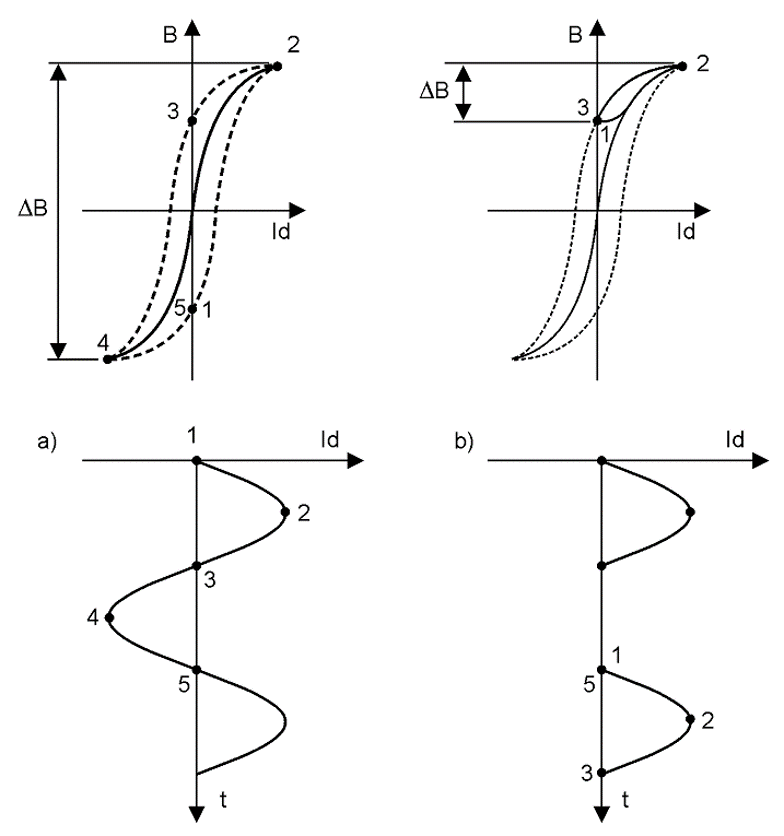The first consideration in selecting a circuit breaker to protect a static UPS with input filters relates to the nominal differential current, which must be co-ordinated with the leakage current of the filters. It is necessary to choose a circuit breaker whose current Idn is higher than the latter, which can be up to 5% in the case of a UPS in a fixed installation.
The second consideration relates to the waveform of the earth fault current, because immediately downstream of the power system electronics (i.e. before the output filter) this is not alternating sinusoidal.

In the toroid of the circuit breaker, a one-way earth fault current causes a smaller flow variation than an alternating current (Figure 1), in addition to an electromotive force which may not be sufficient to cause the protection device to trip.
Within certain limits, type A circuit breakers (Figure 2) also operate at one-way pulsating currents.


Figure 2 – Symbol for Type A differential circuit breaker (Left). Symbol for Type B differential circuit breaker (Right)
Type B circuit breakers (Figure 2) also operate in the presence of one-way fault currents (Figure 3).

If the static UPS is three-phase/single phase or three-phase/three-phase, it is necessary to use type B circuit breakers so as to ensure protection in special cases of faults in the stretch between rectifier and inverter or in the case of an earth fault in the DC stretch of circuit. If the unit is single-phase/single-phase, in the same conditions, i.e. fault on the DC, a type A circuit breaker is sufficient. On the basis of selectivity requirements or particular start-up currents at switch-on of the static UPS due to the input filters, it may be necessary to adopt an S type circuit breaker upstream of the unit.
Tech Info – November 2010
MUST SPECIAL CIRCUIT BREAKERS BE USED IN THE PRESENCE OF A STATIC UPS?
by
MATTEO GRANZIERO
Technical Communication Specialist
SOCOMEC UPS

